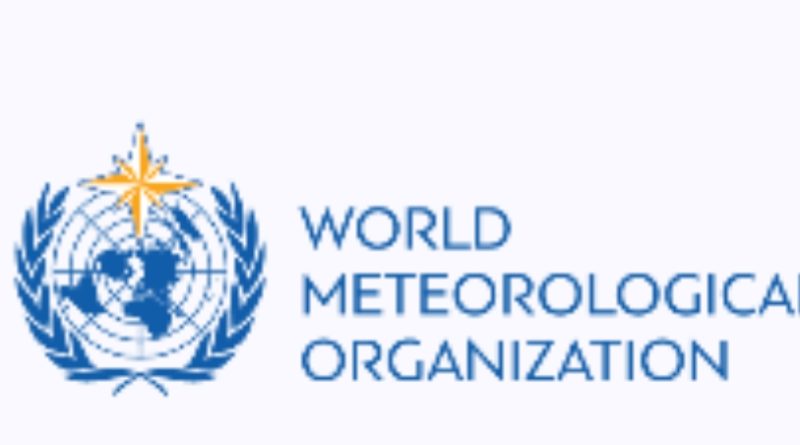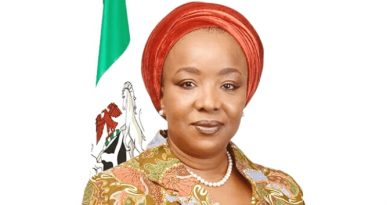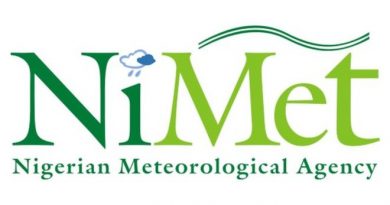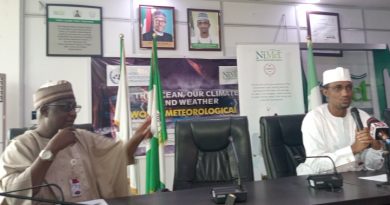UN to support implementation of HydroSOS and Flash Flood Guidance System (FFGS), in Nigeria
Oru Leonard
UN to support implementation of the Global Hydrological Status Outlook (HydroSOS) and Flash Flood Guidance System (FFGS) in Nigeria
The World Meteorological Organization (WMO) has reiterated its commitment to support Nigeria in establishing an effective impact-based hydrological early warning system. This was contained in a goodwill message presented by the WMO representative for North, Central and West Africa, Mr. Bernard Gomez during the 2024 Annual Flood Outlook (AFO) unveiled in Abuja on Tuesday, April 16th, 2024, by the Honourable Minister of Water Resources and Sanitation, Engr. Prof. Joseph Terlumun Utsev, with the theme: “Promoting The Use of Data Analytics & Modelling for Flood Risk Assessments and Food Security, ” which aims to enhance nationwide flood preparedness by providing early warnings.
Bernard says as part of this initiative, WMO will support the full implementation of the Global Hydrological Status Outlook (HydroSOS) which was launched in 2022, and the Flash Flood Guidance System (FFGS) project which will begin later this year. These will support the Nigeria Hydrological Services Agency, NIHSA to develop the technical and human resource capabilities necessary to improve hydrological monitoring, hydrological database management, and early warning services which will in addition contribute to the UN Early Warning for ALL programme currently being implemented globally.
He also highlighted that annually, floods affect millions of people with significant displacements and inundation of farmlands which threatens food security. This can be devastating, causing immense damage to infrastructure, disrupting essential services, and displacing families. By being informed and prepared, Nigerians can significantly help reduce the impact of these natural disasters.
In his keynote speech, the Honourable Minister of Water Resources and Sanitation, Engr. Prof. Joseph Terlumun Utsev revealed significant predictions, which indicated that 148 Local Government Areas (LGAs) in 31 States of the Federation are at high risk of flood, while 249 LGAs in 35 states and the Federal Capital Territory (FCT) are within moderate flood risk areas. These States include Adamawa, Akwa-Ibom, Anambra, Bauchi, Bayelsa, Benue, Borno, Cross-River, Delta, Ebonyi, Edo, Imo, Jigawa, Kaduna, Kano, Katsina, Kebbi, Kogi, Kwara, Lagos, Nasarawa, Niger, Ogun, Ondo, Osun, Oyo, Plateau, Rivers, Sokoto, Taraba, and Yobe.
The Honorable Minister urged states to take proactive measures based on the AFO. These include public awareness campaigns to educate residents on flood preparedness, desilting waterways to improve drainage, and preparing evacuation routes and shelters.
The 2024 AFO not only provided flood early warning but emphasized the importance of water harvesting technologies to store excess water for irrigation during dry seasons. This can not only mitigate flood risks but also improve agricultural productivity. By staying informed and taking the necessary precautions, Nigerians can be better prepared to face the upcoming floods and minimize their impact on lives and livelihoods.
Some of the dignitaries at the event include the Honourable Minister of State for Agriculture & Food Security, Sen. Aliyu Sabi Abdullahi, House Committee Chairman on Hydrological Development/N-HYPADECC, Rt. Hon. Paschal A Agbodike, DG/CEO, Nigerian Meteorological Agency, Prof. Charles Anosike.
Others are the representatives of the Honourable Minister of Environment, Malam Balarabe Abbas Lawal, Director General National Emergency Managment Agency (NEMA) Mrs Zubaida Umar, Disaster risk managers, academia, scholars, directors from several MDAs, environmentalists, stakeholders from government and non-government organizations, water users, and representatives from the private sector.




